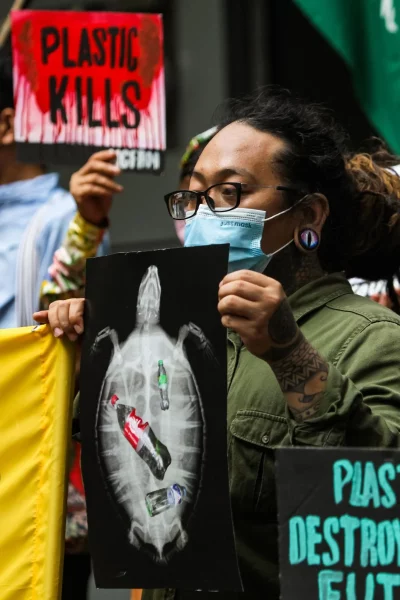Consumers Against Plastic Pollution
By: C-Help Team
Based on clean ups and waste brand audits, the following corporations are the consistent major plastic polluters in the Philippines and the world during 2019 to 2021: Pepsi Cola, Coca Cola, Nestle, Proctor and Gamble, Unilever, and Colgate Palmolive.
Sachets of shampoo and coffee, soft drinks, water bottles, packages of cereals, soap, toothpaste, and other common household items, bags and other packaging materials, or bits and pieces of them, that are all made of plastic, or have plastic component/layer in them that carry the brands of these corporations were found in the said clean ups and brand audits polluting the rivers and seas, some were trapped in the propellers of fishing boats and mangroves in Manila Bay causing damage to them, and clogging cities’ canals and drainage system and contributing to seasonal flooding and urban pollution.
Although the above-said corporations are making commitments and efforts to help address plastic pollution, they do not reduce their plastic productions, and they claim that their products are recyclable through recycle marks, symbols and words printed on their products.
Most plastic products of the said corporations are not recyclable and the recyclable few are not recycled in the absence of the required recycling facility in the Philippines. Only 27% of plastics produced are actually recycled because of the different types, manufacturing processes, and chemical additives used that limit plastic’s recyclability. There are also thousands of variations and not all of these are actually recyclable. If it is recyclable, the quality degrades every time it is reheated and made into a new product. Any plastic with food or material residue cannot be recycled as well. Most of the time, facilities would have to wash these multiple times in order to recycle them, if they are even capable of recycling.
In other countries, such recycling/recyclability claims are required to be specific and truthful. In California, the Truth in Labeling for Recyclable Materials SB – specifically outlaws the use of the “chasing arrows” symbol when it does not meet the standard in California. In Australia, based on its Environmental and sustainability claims, “green” images without specifications can be misleading and that images or statements that indicate recyclability must actually be recyclable in Australia and not just recyclable at only a few facilities. In Oregon, the Truth in Labeling Final Report recommends against misleading or confusing claims of recyclability made on a product or product packaging.
The U.S. Federal Trade Commission (FTC)’s Green Guides apply to environmental claims in labeling, advertising, promotional materials, and all other forms of marketing in any medium, whether asserted directly or by implication, through words, symbols, logos, depictions, product brand names, or any other means.
Several cases have also been filed that are raising legal accountability for the plastic pollution that is damaging the environment and people’s health.
In the Philippines, the Community Legal Help and Public Interest Centre is working with youths, students, fisherfolks, coastal residents, and individuals who are taking action to hold the major corporate plastic polluters liable for violating Filipino complainants’ consumer rights to safety, healthy environment, and information.
JOIN US—as volunteer, supporter or donor—in the legal and policy advocacies to foster corporate accountability and break free from plastic pollution

